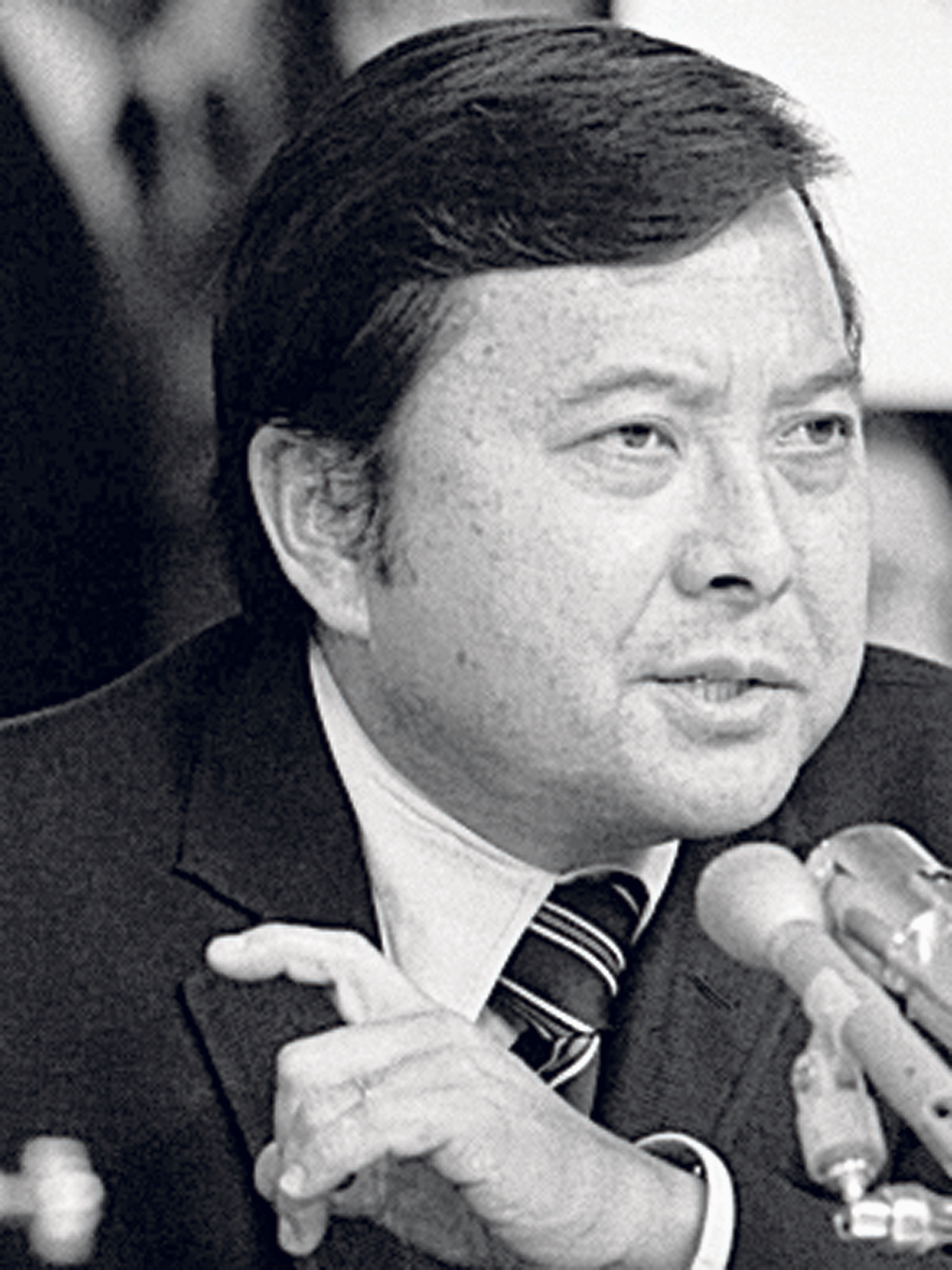Daniel Inouye: War hero and respected Senator

Daniel Inouye was a highly decorated Second World War veteran who used his status as one of the longest-serving and most powerful Democrat Senators to funnel billions of dollars to his native Hawaii. He came to national attention when he helped orchestrate inquiries into the Watergate scandal and the Iran-Contra affair.
Inouye cut a singular figure when he arrived in Washington in 1959 as a representative from the nation's newest state, and the first Japanese-American elected to Congress. A methodical behind-the-scenes operator who rarely sought the spotlight, he was little known outside Hawaii and the Capitol. But his wartime record, for which he received the nation's highest military award for valour, the Medal of Honor, coupled with his reputation for a bipartisan approach to politics, helped him gain respect and influence from colleagues of both parties.
After serving in the House, he was elected to the Senate in 1962 and began a career as Hawaii's most important patron in Washington. As the long-standing chairman of the Appropriations defence subcommittee – and since 2009, of the entire Appropriations Committee – he ensured that Hawaii received a steady flow of dollars to develop military sites and modern transportation, communication and education systems. He was one of the last unapologetic purveyors of political pork.
He was a towering personality in Hawaii, where he was been born to working-class Japanese immigrants. He grew up planning to become a doctor until 1942, when he joined what would become a revered Army regiment of Japanese- Americans. In Italy two years later, he destroyed three enemy machine gun nests as bullets tore through his stomach and legs. A grenade nearly ripped off his right arm, and it was later amputated.
Back in the US, the young lieutenant was wearing his empty right sleeve pinned to his officer's uniform when he stepped into a San Francisco barbershop for a haircut. "We don't serve Japs here," the barber told him. Memories of such encounters remained vivid to Inouye, who spoke eloquently in support of civil rights and social welfare programmes. He was one of a number of Hawaiian-born Japanese-American war veterans who returned to the islands to lead a peaceful grassroots uprising that brought ethnic minorities and working people to power in a place long dominated by white sugar plantation owners.
In 1954 he was part of the Democratic tide that swept Republicans, who had long run island politics and were closely aligned with sugar interests, out of office. Hawaii has voted solidly Democratic ever since. In Washington, Senator Inouye exercised a taciturn authority as a keeper of fading Senate traditions, including collegiality and bipartisan compromise. In 1973, he served on the bipartisan Senate panel that conducted investigative hearings on the Watergate scandal.
The hearings led to the indictment of dozens of administration officials and helped spur Nixon's resignation in August 1974. Watched by millions of viewers over three months, the sessions introduced Inouye to the public as an undaunted questioner of leading White House aides, including H. Haldeman and John Ehrlichman. Ehrlichman's sworn testimony prompted a rare moment of unguarded emotion from Inouye: "What a liar!" he whispered into a microphone he mistakenly thought was dead.
The next week, Ehrlichman's attorney referred to Inouye as "that little Jap," prompting a wave of thousands of telegrams and letters in support of the senator. His widely praised performance led to his becoming the first chairman of the Senate Select Committee on Intelligence, established in 1976 to prevent civil-liberties abuses by US intelligence agencies.
In 1987, Inouye was chosen as Senate chairman of Congress's joint investigation into the Iran-Contra affair. The Iran-contra hearings, nationally televised, resulted in the conviction of several ranking government officials but failed to turn up conclusive evidence that President Reagan had known about the secret deal. Many privately criticised Inouye for mishandling the hearings, permitting the Reagan White House to escape close scrutiny and allowing witnesses – especially Oliver North, who had played a key role in the arms trade – to appear heroic.
Daniel Inouye, war hero and politician: born Honolulu 7 September 1924; married 1950 Margaret Awamura (died 2006; one son), 2008 Irene Hirano (one stepdaughter); died Bethesda, Maryland 17 December 2012.
Subscribe to Independent Premium to bookmark this article
Want to bookmark your favourite articles and stories to read or reference later? Start your Independent Premium subscription today.

Join our commenting forum
Join thought-provoking conversations, follow other Independent readers and see their replies